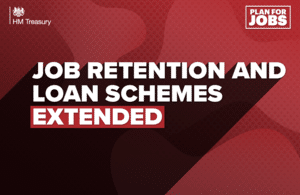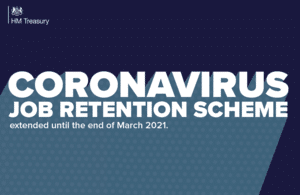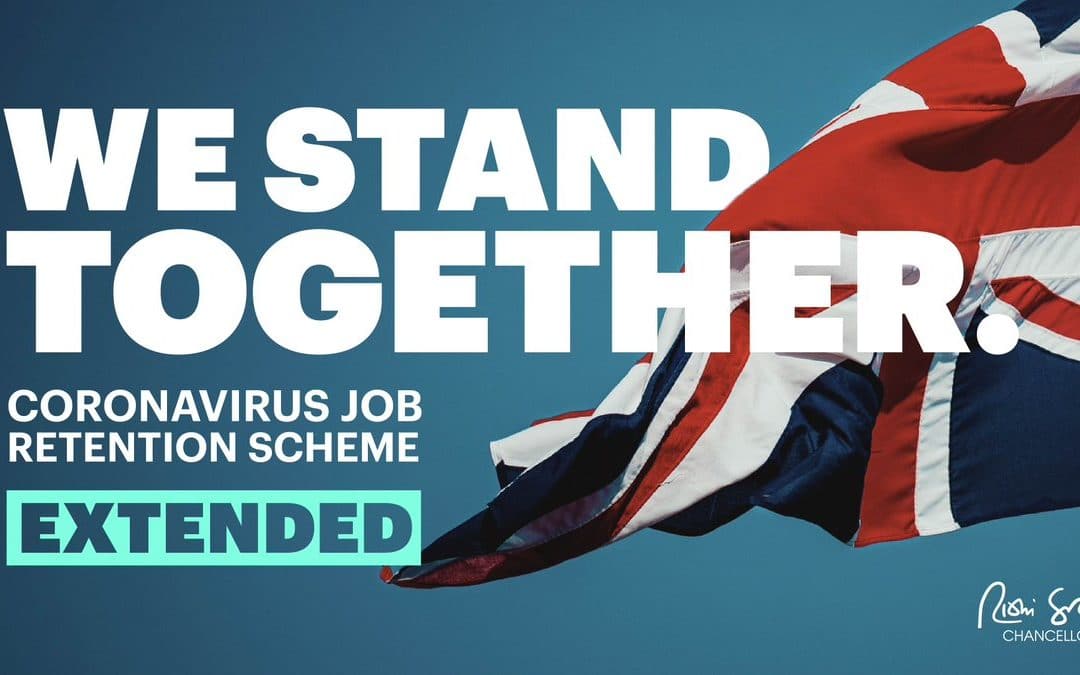
Details of Brexit Deal published and new guidance emerging to support businesses
Details of the Brexit deal are now available. The 1,246-page deal has finally been published along with a helpful summary document. The Deal will need to be ratified in both the EU and UK, with Parliament set to sit on the 30th December. Plans are already in place for Parliament in the UK to allow ratification in a single day and given the strong majority held by the Tory Party and that Labour are likely to support (or worst case abstain), it is likely to pass through the House in time for the 1st January transition.
The European Parliament will not have time to ratify a deal before 1 January, so any agreement would be provisional with Members of the European Parliament (MEPs) voting retrospectively at some point in the new year. Further fine tuning is likely in the New Year.
Key elements of the deal
The agreement is set to deliver a common baseline of regulations and a commitment to minimise technical barriers of trade. The Deal is sets down a framework for future co-operation, with much of the Agreement covering governance and dispute resolution that will support further detailed negotiations in the future. The UK and EU have agreed an independent mechanism to resolve matters if one side diverges too far from common standards, with this bringing with it the prospect of tariffs in the future if agreement is not reached.
Key elements of the deal relevant to the Finishes and Interiors Sector centre on zero-tariffs and quotas. Whilst this won’t constitute frictionless trade, it is will reduce some of the bureaucracy anticipated. New rules will include Relevant Rules of Origin declarations and certain customs checks, which will vary according to the goods being traded. These will be mitigated by the potential to self certificate by allowing self certification of conformity for regulatory compliance by manufacturers and enabling “Authorised Economic Operators” to manage customs arrangements.
The agreement does not include mutual recognition of conformity assessments and plans will continue for the introduction of UKCA and UK NI Marking with companies still having to use EU Notified bodies for the purposes of CE Marking and UK Approved Bodies for UKCA marking (see FIS Guidance on Product Marking here).
The deal does not address concerns related to Movement of Labour and the FIS remains concerned about the short to medium term impact of the new Points Based System and will continue to press this. The Deal does not bring in visas for short term travel from 1st January, but does not preclude it for the future. For UK Nationals living in the EU there is an “equivalent” settled status right that will be available (with arrangements differing between individual member states).
Business Travel is also covered by mutual obligation to cover short-term business travel, subject to certain conditions (new advice has been published in the list below).
The Deal also does not go as far as some had hoped on transfer of data, but new guidance has been published below and change will be phased in over 6 months to support transition.
Despite this positive development, delays at ports are still anticipated and companies are advised to review the contractual implications and ensure that they have protected themselves adequately within their T&C’s. Further advice included in the FIS Brexit Toolkit.
New/Updated Guidance Published to support Businesses in preparing for Transition
Relevant Rules of Origin (RoO)
With the signing of the UK-EU Trade and Cooperation Agreement, the vast majority of traders moving goods between the UK and EU will avoid paying tariffs on that trade. In order to avoid paying tariffs, all traders must – from 1 January – ‘claim preference’ by way of meeting the relevant rules of origin (RoO) for their products and making a declaration to that effect.
Businesses should ensure that the following actions are carried out as soon as possible so that they are ready to use the Agreement:
- Check the rules that are applicable to their products to ensure that the products are originating in either the UK or EU and can therefore be traded on preferential terms. The general rules are found in Chapter 2 of the Trade and Cooperation Agreement and the ‘Product Specific Rules of Origin’ are contained in Annex ORIG-2;
- Consult accompanying GOV.UK guidance;
- Make sure they and their EU suppliers/customers have agreed whether a claim will be based on an exporter’s declaration or on the importer’s knowledge, informing customs agents as appropriate; and
- Get ready to make the appropriate statement on the commercial and customs documentation for all consignments being traded on and after 1 January.
The relevant GOV.UK guidance on claiming preference, including links to the Agreement itself and information about customs codes etc., can be found here. This will be supplemented with longer-form guidance on RoO in the agreement. This should be linked to from the same webpage as soon as it is published.
Every business should consult the Agreement itself and the official guidance linked to above before acting.
To benefit from preferential tariffs when importing into the UK from the EU (or importing into the EU from the UK), the importer will be required to declare they hold proof that the goods comply with the rules of origin.
You’ll be entitled to claim the preferential rate of duty if you have either:
- a statement on origin that the product is originating made out by the exporter; or
- the importer’s knowledge that the product is compliant.
If you’re delaying your declarations for goods imported into the UK from the EU you only need to declare a proof of origin when you make your supplementary declaration. A claim for preferential tariff treatment and the basis for that claim shall be included in the customs import declaration in accordance with the laws and regulations of the importing Party.
If using an exporter’s statement, that statement shall be made out using one of the language versions set out in ANNEX ORIG-4 of the Agreement, in an invoice or on any other commercial document that describes the originating product in sufficient detail to enable the identification of that product. The English language version is below.
The exporter shall be responsible for providing sufficient detail to allow the identification of the originating product. A statement on origin shall be valid for 12 months from the date it was made out or for such longer period as provided by the Party of import up to a maximum of 24 months.
A statement on origin may apply to:
- a single shipment of one or more products imported into a Party; or
- multiple shipments of identical products imported into a Party within the period specified in the statement on origin, which shall not exceed 12 months.
Importing and Exporting
Rules of Origin: Check your goods comply to trade tariff-free with the EU: With a trade deal in place, UK businesses can trade tariff-free with the EU from 1 January if their products meet agreed Rules of Origin. UK traders need to check if their products comply and how to prove they originate. For more information, click here.
Changes to approved exporter authorisations from 1 January 2021: Guidance has been issued about approved exporter authorisations which are issued in the UK no longer being valid in EU countries from 1 January 2021. For more information, click here.
Declaring reusable packaging for Great Britain imports and exports from 1 January 2021: From 1 January 2021, reusable packaging will require an import or export declaration. You may be able to make a declaration at the border (known as a ‘declaration by conduct’) instead and provide information to HMRC on a quarterly basis. For more information, click here.
VAT and overseas goods sold directly and online to customers in the UK from 1 January 2021: Guidance on how sellers will deal with VAT for goods from overseas that they sell to customers in the UK from 1 January 2021 has been updated to include information about selling goods to Northern Ireland. For more information about selling goods directly to customers click here. For more information about selling goods in the UK using online market places, click here.
Check what declarations need to be made for goods you send from the UK or bring or receive into the UK from 1 January 2021: From 1 January 2021, if you are a UK-based business sending goods from Great Britain or Northern Ireland or if you’re a UK-based business bringing or receiving goods into Great Britain or Northern Ireland check what declarations may need to be made. For more information about goods you send, click here. For more information about goods you bring or receive into GB or NI, click here.
Check when you can account for import VAT on your VAT return from 1 January 2021: Guidance has been updated with information added about accounting for VAT if you do not know the full customs value of goods and using someone to import goods on your behalf. For more information, click here.
Carry out international road haulage from 1 January 2021: Guidance has been updated to include information about the journeys you can make in the EU, including cross-trade and cabotage jobs, what you’ll need ECMT permits for, and vehicle insurance green cards. For more information, click here.
EU business: Taxes, tariffs and importing from the UK: Guidance has been updated to show that from January 1 2021, the EU and UK Trade and Cooperation Agreement establishes zero tariffs or quotas on trade between the UK and the EU, where goods meet the relevant rules of origin. For more information on taxes and tariffs click here. For more information for EU businesses importing from the UK, click here.
List of customs agents and fast parcel operators: For more information, click here.
Moving Goods
Claiming preferential rates of duty between the UK and EU from 1 January 2021: Guidance has been added explaining how to claim preferential rates of duty on goods covered in the UK’s deal with the EU and how to declare goods imported into the UK on your import declaration. For more information, click here.
Goods Vehicle Movement service: If you are a haulier that moves goods through one or more ports that uses the Goods Vehicle Movement Service, you should apply to use Goods Vehicle Movement Service. To register for the Goods Vehicle Movement Service click here. To get a goods movement reference using the service, click here. To check that a goods movement reference is valid and if goods can be moved, click here.
How to use your ATA Carnet: Guidance about how the ATA Carnet works, what to do at customs, and what happens if your goods are lost, destroyed, or stolen, has been updated in respect of UK Transition. For more information, click here.
ECMT international road haulage permits: Guidance has been updated to explain why you need ECMT permits in 2021, and how to buy short-term (30-day) permits to use in January and February 2021 if you want to make a third cross-trade movement. For more information, click here.
Northern Ireland
NEW: Starting and ending transit movements in Northern Ireland using common and Union transit: Guidance to assist you in finding out what you need to do if you start and end transit movements in Northern Ireland using common and Union transit has been published. For more information, click here.
Using CHIEF for declaring goods into or out of Northern Ireland: From 1 January 2021, find out when you will still be able to use CHIEF (for a limited period of time) for declaring goods into or out of Northern Ireland. For more information, click here.
UPDATED: Moving qualifying goods from Northern Ireland to the rest of the UK from 1 January 2021: Guidance has been updated with information added about goods for which specific conditions apply when moved from NI to GB, and placing qualifying goods on the market in GB. For more information, click here.
Apply for authorisation for the UK Trader Scheme if you bring goods into Northern Ireland from 1 January 2021: Guidance has been updated with Information about if you supply goods to a business in Northern Ireland but do not have a fixed address in Northern Ireland. For more information, click here.
Marketing Goods
Product safety and metrology: Guidance has been updated with new guides for Great Britain and Northern Ireland added on Regulation 765/2008 on Accreditation and Market Surveillance. For more information on Great Britain guidance, click here. For more information on Northern Ireland guidance, click here.
Guidance has also been updated to include a guide on ‘UK product safety and metrology: What’s changed from 2 January 2021 in relation to Great Britain?’. For more information, click here.
Placing manufactured goods on the EU market from 1 January 2021: Guidance has been updated to note that the UK conformity assessment bodies will no longer be able to carry out mandatory conformity assessment for products being placed on the EU market. For more information, click here.
Personal Data
Using personal data in your business or other organisation from 1 January 2021: Guidance has been added to include information on the EU-UK Trade and Cooperation Agreement interim bridging mechanism for personal data. For more information, click here.
Business Services
UPDATED: Providing services and travelling for business from 1 January 2021: Guidance has been updated to reflect the changes created by the UK and EU Trade and Cooperation Agreement for the following countries: Norway, Bulgaria,Latvia, Belgium, Italy, The Netherlands,Ireland, Malta, Switzerland, Iceland, Austria, Hungary, Greece, Germany, Slovenia, Romania, Denmark, Luxembourg, France, Finland, Estonia, Sweden, Spain, Slovakia, Czech Republic, Portugal Cyprus, Poland, Croatia, Lithuania and Liechtenstein.
Trade with non-EU countries
After 31 December 2020, EU trade agreements will not apply to the UK. This is the case regardless of the agreement with the EU. The UK has signed trade agreements with various countries and trading blocs. For more information on signed trade agreements and trade agreements still in discussion, click here
We will share the further guidance as soon as we can. If you have any questions after reviewing the Treaty text or existing guidance, please contact iainmcilwee@thefis.org
If not seen already and you are keen to find out about other aspects of the Deal, the general clauses are summarised here.
You can access the full 1,246 pages of the deal here
You can access the FIS Brexit Toolkit here.





